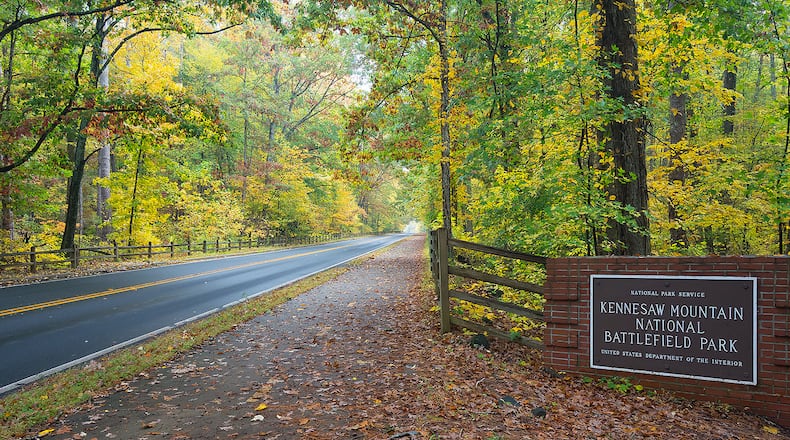The biggest land conservation legislation in decades will allocate billions of dollars for maintenance and conservation of national parks and public lands bringing much needed funding to recreational areas and historic sites in metro Atlanta.
The Great American Outdoors Act, signed into law by President Donald Trump on Aug. 4, was first introduced in the House last year by the late U.S. Rep. John Lewis. Lewis, 80, died July 17 after battling cancer. His funeral was held at Ebenezer Baptist Church in Atlanta, one of the local sites considered a high priority for maintenance under the new legislation.
Just before the bill was signed on Tuesday, Secretary David Bernhardt with the U.S. Department of Interior noted the significance of the law which combined two legislative proposals and gained bipartisan support. Of the nearly $3 billion in funds, 40 percent of the money will go to state and local governments for land conservation and recreational facilities and 60 percent will stay with the federal government on expanding land acquisitions and recreational facilities, Bernhardt said.
The Secretary also announced the National Park Service would waive entry fees to national parks and public lands on Wednesday. That includes Kennesaw Mountain National Battlefield Park which posted an invitation to visitors on social media. Bernhardt said in the future August 4 would be designated “Great American Outdoors Day.” Each year on that day visitors will be granted free entrance to celebrate the signing of the landmark legislation.
“When people think of national parks they think of beautiful landscapes and historic places. They are thinking about all of this really inspirational stuff and maybe they are not thinking about the fact that in some cases these national parks are like small cities and have the same needs that some municipalities would have,” said David Lamfrom, southeast regional director of the National Parks Conservation Association. “Over time park budgets have not kept up with the reality of what was required,” he said. “This was a grand action to try to rectify something that has been a public shame for a very long time.”
The legislation has components of two previous bills including the Land and Water Conservation Permanent Funding Act, which allows the Park Service to purchase and protect public land under threat from development. The Act will be funded each year at the full $900 million originally set by Congress in 1965.
Locally, that means funding could be used to buy stretches of privately owned land in areas along the Chattahoochee River or Appalachian Trail that could be converted to public greenspace, said Environment Georgia’s Executive Director Jennette Gayer.
“Georgia is a rapidly growing state and there is development pressure on a lot of our really beloved green space,” Gayer said. “This funding is valuable when it comes to expanding our parks.”
The other part of the legislation, the National Parks and Public Land Legacy Restoration Fund allocates $9.5 billion over the next five years to address outdated infrastructure on public lands with 70% of funds going to the National Park Service, 15% to the U.S. Forest Service and 5% each to the U.S. Fish and Wildlife Service, the Bureau of Land Management and the Bureau of Indian Education.
In metro Atlanta, that will mean much needed funding for the Martin Luther King, Jr. National Historical Park which has total maintenance needs of $20 million, according to the most recent data from the National Park Service. The highest maintenance needs are for buildings ($18 million), including repair work at Ebenezer Baptist Church. Paved roads and structures have an estimated maintenance need of $1 million.
Chattahoochee River National Recreation Center also has $14 million in deferred maintenance, including $8 million needed to repair paved roads used by 3.4 million visitors each year who come to enjoy the trail and river, said acting Superintendent Ann Honious.
About the Author
Keep Reading
The Latest
Featured



